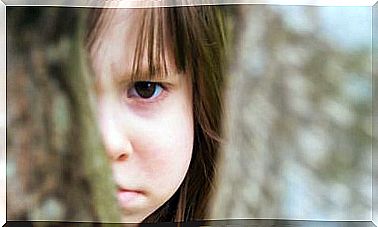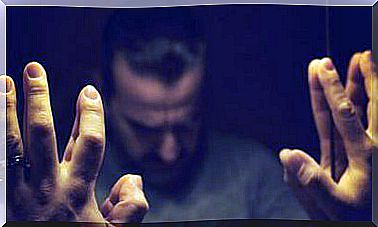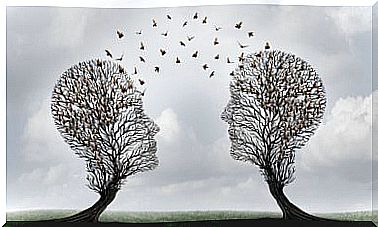Why Was Dating After 30 No Longer Fun?

One wonders, why did dating after 30 stop being fun? After the golden twenties, dear friends tend to drift away, become weird, get angry. And you too. But… don’t worry: it’s a new era of life and it requires relearning and redefining the concept of friendship. It seems to be a common sensation, but no less painful for that.
From the age of thirty , the friendly social relationships woven from childhood or high school can deteriorate markedly. Today, what we can see is that around the age of 30 we develop our family life, have our first children, travel or change jobs continuously.
We have emigrated, this generation has lived in different places. The experiences of the friends are no longer shared as before, with this continuity in time and space. Still, there are deeper reasons many people wonder. Why did dating after 30 stop being fun?

Why did dating after 30 stop being fun?
If work and family are combined, the time available, naturally; is reduced. Before that time, free time was more important, we had a habit of occupying it since high school with friends. Our twenties are a time when you need your peers to define yourself.
We can also define ourselves in relation to our parents, in constant change and conflict. But when you are thirty years old, you cross a milestone: you work and become a worker, a citizen, a mother or an activist. Does that mean not being able to have friends? Yes, and so much. But very often it is convenient to change companies and that is painful. We have not learned to do it in school. It is a kind of tear and some group identity is lost.
A matter of mobility
When we are stuck in a professional life, we move and do not necessarily find ourselves where our friends live. There is almost no choice: this break with some of our friends is a fact.
Not talking about everyday life and shared moments leads to many silences. You find yourself involved in conversations that do not fill you, you miss being politically incorrect and what you liked about a person in high school can now be unbearable.
Is it a question of gender?
Entering my thirties I got to know feminism. It was intellectually and emotionally overwhelming. Unfortunately, those people with whom I spoke on a screen explained their feelings like me, but then each one went on with their life after that virtual contact.
Then something disturbing happened. Every time I understood more what all women went through. But the meetings with friends were endless. You could see the social pressure, the loss of spontaneity. He no longer stayed in order to have fun.
Ways were sought to become “adult”: when to be able to find someone or start frequenting places that did not satisfy me just because there were people our age.
I was no longer interested in having a social life, I had always been in love with social relationships, with the vitality they gave me. Sometimes I loved being able to hold all my friends. His so-called “dramas” never tired me. Because we spoke from the heart. I took it more seriously than any possible romance.
When I was still not dejected enough, the worst came: I realized that hanging out with groups of boys really had a better time. They have established lines of communication for centuries, their meetings are still intact and it seemed that fun could be compatible with interesting conversations. That generational leap was not so noticeable. And I have to admit that I clung to it.
Staying after 30. More problems than memories?
I regularly hear people say that they realized that their friends had gone on vacation without them. It is completely legitimate to feel angry. Losing people we hold dear is a widespread concern. But after more than 30 years of life, I realize that it is inevitable and even quite healthy.
Managing the large number of friends is complicated. I imagine it is possible. However, I find it difficult to be in contact with many people at the same time without losing the quality of the relationship. Evolving in different fields, with diverse concerns, a busy schedule and new knowledge can distort the strongest ties.
This anticipation, looking up allows me to dramatize before it happens. Even if I am sad at times, in these cases I am ready to receive this sadness, express it if I need it, and then, over time, move on. I try to anticipate situations that can end in hecatomb.
You have to do what you can to keep friends for a lifetime. Except if disrespect, attacks and disloyalty have appeared. I don’t know what can define a lifelong friend more than loyalty. It is your lameness that differentiates you from other people.

Why is it no longer fun to stay after 30 is not the right question
I lost friends, but our relationship was going nowhere. One summer can be enough to make us aware of how little there is already in common. If my friends have acted in a way that does not suit me, then it may be time to end a relationship in which the concepts of respect are no longer given, the friendship contract is no longer understood or shared.
In the same way that I consider it legitimate to separate from a partner if the person can no longer fulfill my expectations or respect the “contract” that we had established, it is healthy to end a friendship.
Above all, I have the impression that when a relationship ends in a clear, calm and frank way, the duel is simpler, in addition to preserving the memories with a greater affection. I lost important and precious friendships (but I’m fine).
And I want to get back to having fun, connecting, and sharing my memories of tomorrow. Now, at 30, I want this decade to be fun again. And I no longer feel guilty about it.









